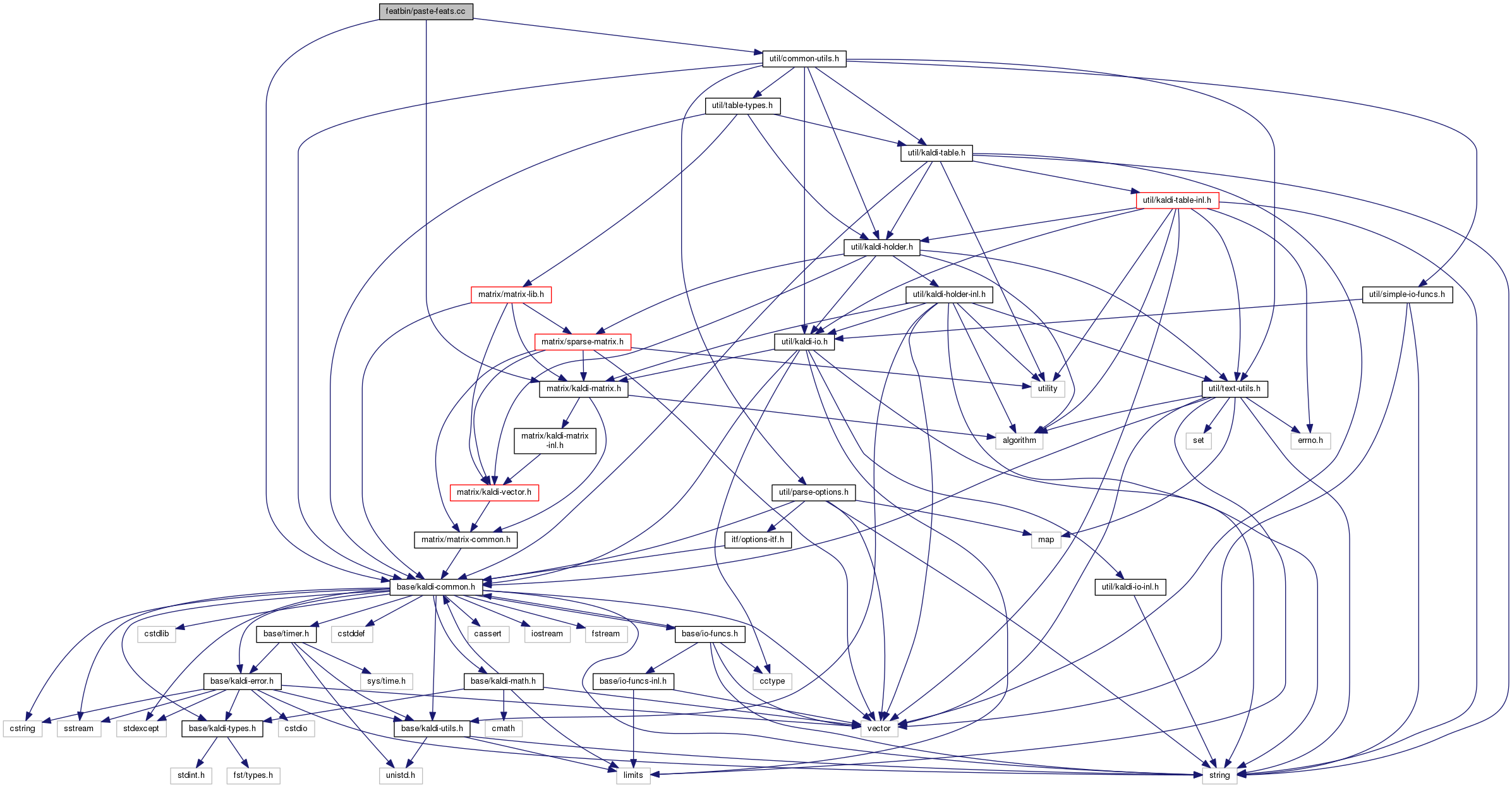72 using namespace kaldi;
76 "Paste feature files (assuming they have about the same durations,\n" 77 "see --length-tolerance), appending the features on each frame;\n" 78 "think of the unix command 'paste'.\n" 79 "Usage: paste-feats <in-rspecifier1> <in-rspecifier2> [<in-rspecifier3> ...] <out-wspecifier>\n" 80 " or: paste-feats <in-rxfilename1> <in-rxfilename2> [<in-rxfilename3> ...] <out-wxfilename>\n" 81 " e.g. paste-feats ark:feats1.ark \"ark:select-feats 0-3 ark:feats2.ark ark:- |\" ark:feats-out.ark\n" 82 " or: paste-feats foo.mat bar.mat baz.mat\n" 83 "See also: copy-feats, copy-matrix, append-vector-to-feats, concat-feats\n";
87 int32 length_tolerance = 0;
89 po.Register(
"length-tolerance", &length_tolerance,
90 "If length is different, trim as shortest up to a frame " 91 " difference of length-tolerance, otherwise exclude segment.");
92 po.Register(
"binary", &binary,
"If true, output files in binary " 93 "(only relevant for single-file operation, i.e. no tables)");
97 if (po.NumArgs() < 3) {
107 string wspecifier = po.GetArg(po.NumArgs());
111 string rspecifier1 = po.GetArg(1);
115 vector<RandomAccessBaseFloatMatrixReader *> input;
116 for (
int32 i = 2;
i < po.NumArgs();
i++) {
117 string rspecifier = po.GetArg(
i);
122 int32 num_done = 0, num_err = 0;
125 for (; !input1.Done(); input1.Next()) {
126 string utt = input1.Key();
127 KALDI_VLOG(2) <<
"Merging features for utterance " << utt;
130 vector<Matrix<BaseFloat> > feats(po.NumArgs() - 1);
131 feats[0] = input1.Value();
133 for (i = 0; i < static_cast<int32>(input.size()); i++) {
134 if (input[i]->HasKey(utt)) {
135 feats[i + 1] = input[
i]->Value(utt);
137 KALDI_WARN <<
"Missing utt " << utt <<
" from input " 143 if (i != static_cast<int32>(input.size()))
146 if (!
AppendFeats(feats, utt, length_tolerance, &output)) {
150 feat_writer.
Write(utt, output);
154 for (
int32 i=0; i < input.size(); i++)
158 KALDI_LOG <<
"Done " << num_done <<
" utts, errors on " 161 return (num_done == 0 ? -1 : 0);
164 std::vector<Matrix<BaseFloat> > feats(po.NumArgs() - 1);
165 for (
int32 i = 1; i < po.NumArgs(); i++)
168 if (!
AppendFeats(feats,
"", length_tolerance, &output))
170 std::string output_wxfilename = po.GetArg(po.NumArgs());
172 KALDI_LOG <<
"Wrote appended features to " << output_wxfilename;
175 }
catch(
const std::exception &e) {
176 std::cerr << e.what();
This code computes Goodness of Pronunciation (GOP) and extracts phone-level pronunciation feature for...
void Write(std::ostream &out, bool binary) const
write to stream.
RandomAccessTableReader< KaldiObjectHolder< Matrix< BaseFloat > > > RandomAccessBaseFloatMatrixReader
A templated class for writing objects to an archive or script file; see The Table concept...
RspecifierType ClassifyRspecifier(const std::string &rspecifier, std::string *rxfilename, RspecifierOptions *opts)
void ReadKaldiObject(const std::string &filename, Matrix< float > *m)
Allows random access to a collection of objects in an archive or script file; see The Table concept...
bool AppendFeats(const std::vector< Matrix< BaseFloat > > &in, const std::string &utt, int32 tolerance, Matrix< BaseFloat > *out)
The class ParseOptions is for parsing command-line options; see Parsing command-line options for more...
A templated class for reading objects sequentially from an archive or script file; see The Table conc...
void WriteKaldiObject(const C &c, const std::string &filename, bool binary)
